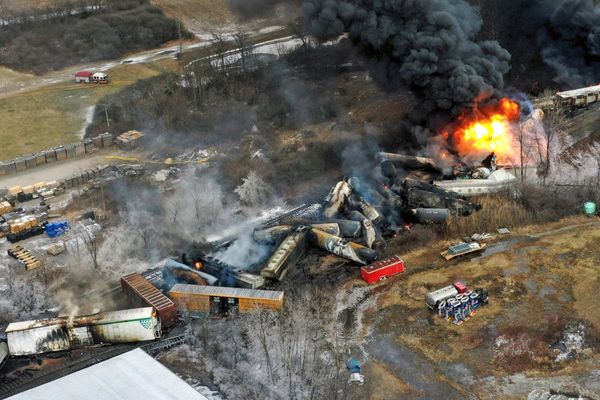
Fourteen, the stage adaptation of my memoir of the same name, captures a moment in history and in my life that feels so far away now.
It’s been 25 years since 1999, when a lonely and terrified teenage boy found himself suffocating in a repressive regional Queensland town and trapped in an all-boys, NRL-mad Catholic school, where he was a “faggot”, “poofter”, “pillow-biter” and “fudge-packer”, but never called by his name.
There was a daily backdrop of extreme violence and relentless taunting – in the playground, on the street, in the shopping centre. Just two years earlier, Tasmania had become the final state in Australia to decriminalise homosexuality; all many of us knew about it was gleaned from news about the Aids crisis, true crime documentaries about the murders of dozens of gay men in Sydney, and lazy comedy caricatures about promiscuous flight attendants and hairdressers.
That boy spent most waking moments loathing the inevitable fact that he was going to wind up gay – just about the worst thing you could be in that place and that time – and wondering how he would ever be happy, safe or loved. I made it out alive thanks to caring friends, protective siblings, a ferocious mother and an extensive catalogue of cheesy, upbeat pop songs. Not everybody was so lucky.
After one of our recent Sydney shows, a woman in her 50s approached me in the foyer, her eyes red and cheeks damp.
“Thank God things aren’t like that any more,” she sighed, gripping me tightly.
But really, how much has changed since I was a kid? This week, a council in western Sydney voted to strip its local libraries of books about or referring to same-sex parent families. The motivation was to “protect” innocent children from “sexualisation”. That part of the city is devoutly religious and family-friendly, the council declared; the implication was that anyone queer must be perverted, sinful, committed to the destruction of the family unit, and somehow preying on children. Feels a lot like the bad old days to me.
If that’s what we’re contending with in 2024, in one of the world’s most queer-friendly cities, what’s life like beyond the big smoke?
Fourteen is visiting 20 stops across Australia over the next five months, the majority of them in the regions. That was so important to me because it’s where my story began and where, in some of those towns, being gay is still fraught with danger.
The show will travel to Bathurst, about 200km west of Sydney, and Orange, in the state’s central west. Plans for Pride events in both towns recently attracted vile threats that almost derailed festivities. A young man from Dubbo, a few hours’ drive north of Orange, wrote to me to apologise for being unable to come to our production there. He’s too scared to be seen going to a “gay show”.
We programmed some matinee sessions for this tour, hoping high school teachers could take their class in during school hours – but we’re hearing there’s a strong fear of backlash from parents if they even suggest it.
We’ll be in Wyong on the NSW Central Coast soon, where a vetted and endorsed political candidate for the Liberal party was eventually dumped after a series of historical comments on social media – comparing homosexuality to incest and necrophilia, and labelling it a “perversion” under a post about conversion practices – came to light.
I’m anxious about our visit to Maryborough in Queensland, where a brutal killing in 2008 sparked a campaign to end the so-called “gay panic” defence, which essentially meant a “homosexual advance” could justify murder. It took nine years for the state parliament to scrap the barbaric provision.
We’re also off to Rockhampton in central Queensland, about 45 minutes from my childhood home town, where some bookshops initially refused to stock Fourteen due to its content.
Of course, as we’ve learned this week, these attitudes aren’t confined to regional and rural Australia. Take Canberra, for instance, where the show travels this week – and where some of our elected officials are now lobbying for a so-called religious freedom bill. If legislated, it could allow schools to sack queer teachers, nursing homes to boot out queer residents, and devout pharmacists to refuse medications to queer customers, on the basis of religious belief.
We return to Brisbane in June, where we first staged Fourteen, and where a dear friend’s son faced relentless bullying for his identity at his school in an affluent middle ring suburb, and received little support. He took his own life in January. He was 14.
I’m incredibly grateful for the big leaps forward we’ve made as a society, as a country, over many painful decades. That progress was hard-fought, and those who benefited – like myself – did so at the expense and thanks to the sacrifices of countless advocates.
I’m married, I have a daughter, and I’ve built a wonderful career in an industry where being gay is such a non-issue that I sometimes forget I am. But if I hadn’t escaped that town – heck, if I lived 40 minutes further west – who knows where I would be?
For all the Passion Pop and S Club 7 choreography you’ll see in Fourteen, not all of the story is ancient history. There’s still an undercurrent of fear and hate, in both our cities and our regions, in politics and within schools.
We’ve come so far. But we still have so far to go.
Fourteen is touring Australia now. For dates and tickets, visit shakeandstir.com.au
In Australia, the crisis support service Lifeline is 13 11 14. In the UK and Ireland, Samaritans can be contacted on freephone 116 123, or email jo@samaritans.org or jo@samaritans.ie. In the US, you can call or text the National Suicide Prevention Lifeline on 988, chat on 988lifeline.org, or text HOME to 741741 to connect with a crisis counselor. Other international helplines can be found at befrienders.org







